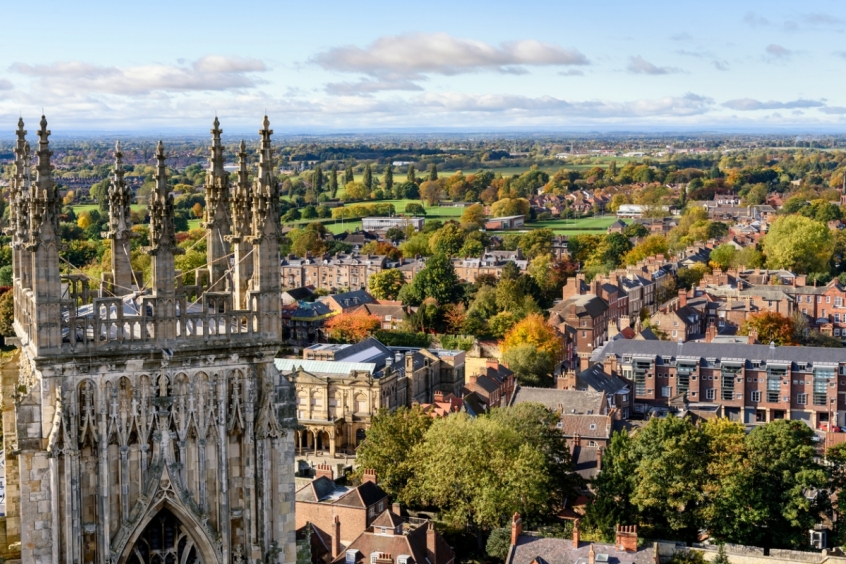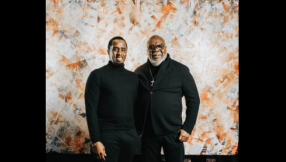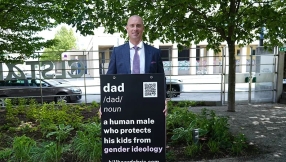
Today, in the UK and around the world, trust in institutions of all kinds – including the Church – is at an all-time low. But could advice to a bishop from a Victorian writer help win back public confidence?
Might it even challenge members of the Church of England's General Synod, or parliament, as they meet in York this weekend?
"Power tends to corrupt and absolute power corrupts absolutely." So wrote Lord Acton, the English 19th century historian and politician.
It's one of those wise statements that tends to get quoted whenever a senior person is found guilty of abusing their power, and it's as true in today's United Kingdom or United States as it was in Queen Victoria's reign.
What's less widely known is that Lord Acton made that statement in a letter to a senior Church of England cleric. He wrote it in 1887 to Mandell Creighton, who would later become Bishop of London.
Creighton had objected to what he saw as a modern tendency to be unnecessarily critical of authority figures. Acton disagreed, and felt that all people – past or present, leaders or not – should be held to universal moral standards.
Christ's attitude to power was shown starkly when he washed the feet of his disciples, taking the place of a slave, before the Last Supper. He called on his followers to seek a life of service, saying "whoever wants to become great among you must be your servant" (Matthew 20:26).
In his time on earth, Jesus tended to be found with the poor and marginalised. He had his strongest criticism for people who had power and were using it to exploit others. He spoke out for people ignored or rejected by others and this made enemies of powerful people.
Former diplomat Anthony Ball, now a canon at Westminster Abbey, argues that for trust in institutions to be advanced, they need to demonstrate "honesty, humility, compassion and competence."
In an essay, newly published by the Westminster Abbey Institute, he contends, "If power corrupts, then those seeking or exercising it, or the institutions that mediate it, need to be particularly careful to ensure that there are healthy mechanisms of accountability in place.
"Self-regulation – whether in the media, higher education, the judiciary, the police, or indeed, the Church – have all been questioned in recent years as doubts are raised about the extent to which independent scrutiny is really delivered."
Christian author and theologian Richard Foster put power's threat like this: "Power can destroy or create. The power that destroys demands ascendancy. It demands total control. It destroys relationships. It destroys trust. It destroys dialogue. It destroys integrity."
We see this in today's fractured politics. We see it in big business and in charities. We see it in so many areas of our public lives. The Church, at times, is sadly no exception.
When church leaders cannot be challenged, or leaders of Christian organisations are perceived as beyond criticism, or denominations wish to 'mark their own homework' by carrying out only internal reviews of possible wrongdoing, then alarm bells should be ringing.
When people are frightened of speaking out because they could be isolated in their communities, discriminated against or passed over for promotion in their workplaces, then power is being abused.
A wise person told me that whenever someone says to you, "This conversation never took place," then that's a red flag that something is not right. "Better not mention this to anyone," is another cause for caution.
Often, it takes a brave whistle-blower to sound the alarm, maybe at risk to their livelihood or reputation. In the UK and around the world, journalists have spoken out against powerful interests and paid the price - in some countries with their lives.
But while I salute the whistle-blowers and investigative journalists, often the solution can be a whole lot less headline-grabbing.
It's about having good checks and balances in place, about having governance structures that work, and independent regulators with powers that really bite. It's about making sure that accountability really exists and can be seen to work. Transparency boosts trust.
The devil, they say, may be in the detail but often angels can dwell within the small print of laws and regulations designed to hold powerful people and institutions to account.
We should encourage those angels to flourish.
Rev Peter Crumpler is a Church of England minister in St Albans, Herts, UK, a former communications director with the CofE and author of 'Responding to Post-truth'.













